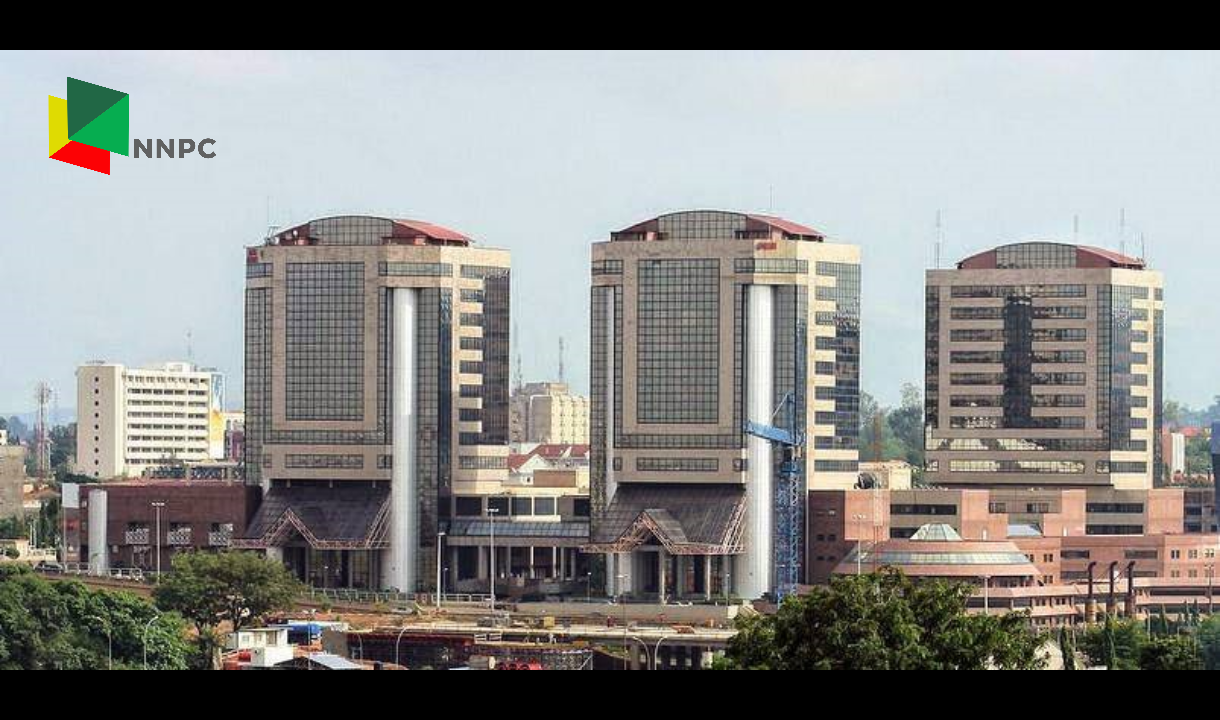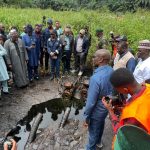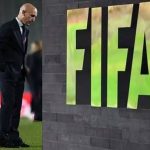In its editorial of Friday August 25 that read more like a diatribe against President Bola Tinubu and the Nigerian National Petroleum Company Limited than an objective news analysis, the Punch newspaper uncharacteristically lowered the bar! The editorial entitled “NNPC overdue for drastic shake-up,” did not read like one. Instead, it read like a subtle dig at President Tinubu’s decision to retain the petroleum minister’s portfolio and back NNPC’s reform initiatives.
Unlike a true newspaper editorial which presents the facts and examines arguments for and against a subject matter before taking a position, the Punch editorial read like a pre-meditated, short-sighted and hollow advocacy dressed as informed opinion. While informed discourses are known to dissect plurality of views on a topic, Punch chose only one side of the argument to make it’s demands.
The editorial expressed opposition to the recent $3 billion emergency crude oil repayment loan midwifed by the NNPC to stabilize the naira and help in reducing petrol price. This is an initiative that many industry analysts have applauded as ingenious. Interestingly, the paper acknowledged the reasons given for the loan and the fact that it is a low-risk loan which comes with “no encumbering sovereign guarantees,” but still chose to see the downside of what is clearly an emergency initiative.
The paper, after acknowledging the dire economic situation inherited by the current administration occasioned by the removal of fuel subsidy, and what the loan is meant to achieve, said, “All well and good; but it raises the question whether the government still regards NNPC as a ready Automated Teller Machine as Tinubu once alleged while he was an opposition figure. Some financial sector experts also suggest that such a loan should have been contracted by the Central Bank of Nigeria, the recognised monetary authority, not the NNPC…”
To the paper, the NNPC management headed by Mele Kyari should be removed because some “analysts fret that the national oil company still operates like a government department despite its recent supposed transition to a fully commercial, profit-oriented firm.”
The paper scratched around for further justification of its demand by serving its readers a rehash of old allegations against the NNPC as a cesspool of corruption and deliberately failing to admit the paradigm shift that had occurred in the company since Kyari was injected into the system.
It’s unfortunate that a Punch editorial could deliberately refused to acknowledge the vigorous and groundbreaking reforms at the NNPC since Mele Kyari was first appointed as the Group Managing Director of the oil company in July 2019. That the paper could ignore the well documented progress at the oil company betrayed its adversarial disposition to the All Progressive Congress led federal government since 2015, and to Kyari’s leadership of the NNPC.
By condemning the president’s decisions to retain the petroleum portfolio and support NNPC’s acquisition of the $3 billion loan on the basis of the opinions expressed “by some analysts,” Punch failed to acknowledge Tinubu’s own vast knowledge of the oil industry, having previously worked with Mobil Oil Nigeria-a multinational oil company.
The paper also inelegantly discounted Tinubu’s financial wizardry as an American trained accountant who should know about financial re-engineering and risk assessments. Tinubu, who trained as an accountant, had worked with two of the global names in accounting—the American firms of Arthur Anderson and Deloitte. I think the President has made a sport of disappointing his adversaries all the time they had either genuinely doubted him or mischievously wanted him to fail.
This is a man who came to power with a blueprint but his critics would rather describe him as unprepared for the job to create problems for him so he might fail. Anyone who listened to Tinubu’s speech at the Arewa House, Kaduna in October last year would understand why the president has expressed optimism that Nigerians would not suffer for long despite the economic situation of the country.
Tinubu spoke on security, economy, education and infrastructure development. But the most memorable line for me was when a member of the audience asked him where he would get the funds to fulfill his promises if elected. Tinubu had the answer on his lips. He said “we can bring out water from a dry well!”
Punch quoted old audit reports on the NNPC which revealed missing funds and lack of transparency and concluded that the company was long overdue for an overhaul, conveniently forgetting that these were the same menace that the Kyari management has fought since his appointment much to the applause of stakeholders in the oil and gas industry.
Within days of his appointment, Kyari unveiled his “Roadmap to Global Excellence” anchored on the TAPE Agenda. TAPE represents Transparency, Accountability and Performance Excellence—concepts that were hitherto unknown in the company. He led NNPC from a loss-making company to a profitable one in the year 2020 when, for the first time in its 44 years history, NNPC declared a profit after tax of N287Billion. This went up to N674billion profit after tax in 2021.
In December 2019, Mele Kyari achieved the closeout of the Final Investment Decision of the multi-billion-dollar NLNG Train 7 Project that has been on the drawing board for over a decade. This was at a time that the Covid-19 was taking its toll on the global economy. He also successfully renegotiated the Ajaokuta-Kaduna-Kano (AKK) Gas Pipeline contract. The AKK Gas Pipeline is an integral part of the Trans-Nigeria Gas Pipeline (TNGP) with a capacity to transport about 2.2billion cubic feet of gas per day. The contract was renegotiated from the initial $2.8billion to $2.5billion, achieving cost savings of $300million in favour of the Nigerian government. Construction work on the project was flagged-off in June 2020.
Mele also led the signing of a $260m Financing Agreement for the Assa-North Ohaji South (ANOH) Gas Project with Seplat to deliver 300 million standard cubic feet of gas per day and 1,200 megawatts of electricity to the domestic market.
When he was again appointed as Chief Executive Officer of the Nigerian National Oil Company Limited (NNPCL), the successor company to the NNPC under the new dispensation ushered in by the Petroleum Industry Act, which came into force in 2021, the TAPE became the operational standard for service delivery. It was Mele Kyari’s leadership that propelled the company forward and helped Nigeria navigate the Coronavirus pandemic which devastated the world in 2020 and 2021.
Two years after leading the company as its CEO, Kyari has achieved astounding successes. Huddles that were thought impossible to cross are being surmounted. Oil theft by criminal cabals and pipeline vandalism, which prevented Nigeria from meeting its oil production quota, have been drastically reduced through the launch of the “Crude Theft Monitoring Application.”
These efforts, in addition to the war against illegal refineries, have led to significant spike in oil production which went up to 1.6 million barrels per day in June. But current production stands at 1.57million per day, although its projected to hit 1.8 million per day. In addition, according to the fourth quarter 2022 figures released, Nigeria has regained its position as the largest crude oil producer in Africa, ahead of Algeria’s 1.021 million barrels/day and Angola’s 1.088mb/d in November 2022.
The $3 billion loan recently secured by NNPC is not the first targeted financial intervention by the company. In order to reposition NNPC for global competitiveness, Kyari and his team of technocrats have secured alternative project financing for several important projects including: $5Billion corporate finance commitment from the Africa Export Import Bank to fund major investments in Nigeria’s Upstream sector; Alternative Financing and Technical Services package worth N875.75m for NPDC’s OML 65 in order to increase national production; Alternative Financing Package worth $3.15bn with Sterling Exploration and Energy Production Company Limited (SEEPCO) and other partners for the development of NPDC’s OML 13.
One can go on and on to highlight the remarkable impact Kyari’s leadership has brought to Nigeria’s oil and gas sector—successes which appeared to be well known to the president, and which is probably responsible for the president’s seeming confidence in Kyari’s leadership of the NNPC.
Of course, Punch does not like the president’s confidence in Kyari, that’s why the paper urged Tinubu to clear off the NNPC management, adding rather presumptuously that “his coziness with Mele Kyari, the Group CEO, notwithstanding.”
The editorial obviously begs the question: What interest is Punch serving? There’s no denying that any government decision can be criticized, and it’s the duty of the media to hold the government accountable. But the media, like the government, wields its powers on behalf of the people.
Media interventions must always be for the public good, and when a government takes critical and courageous steps that are in the public interest as it’s the case with the $3 billion loan for crude, it behoves on the media to queue behind it or offer valuable suggestions. Any other position would rightly be considered counterproductive and ill-motivated.
Punch got this wrong.
























Leave a comment